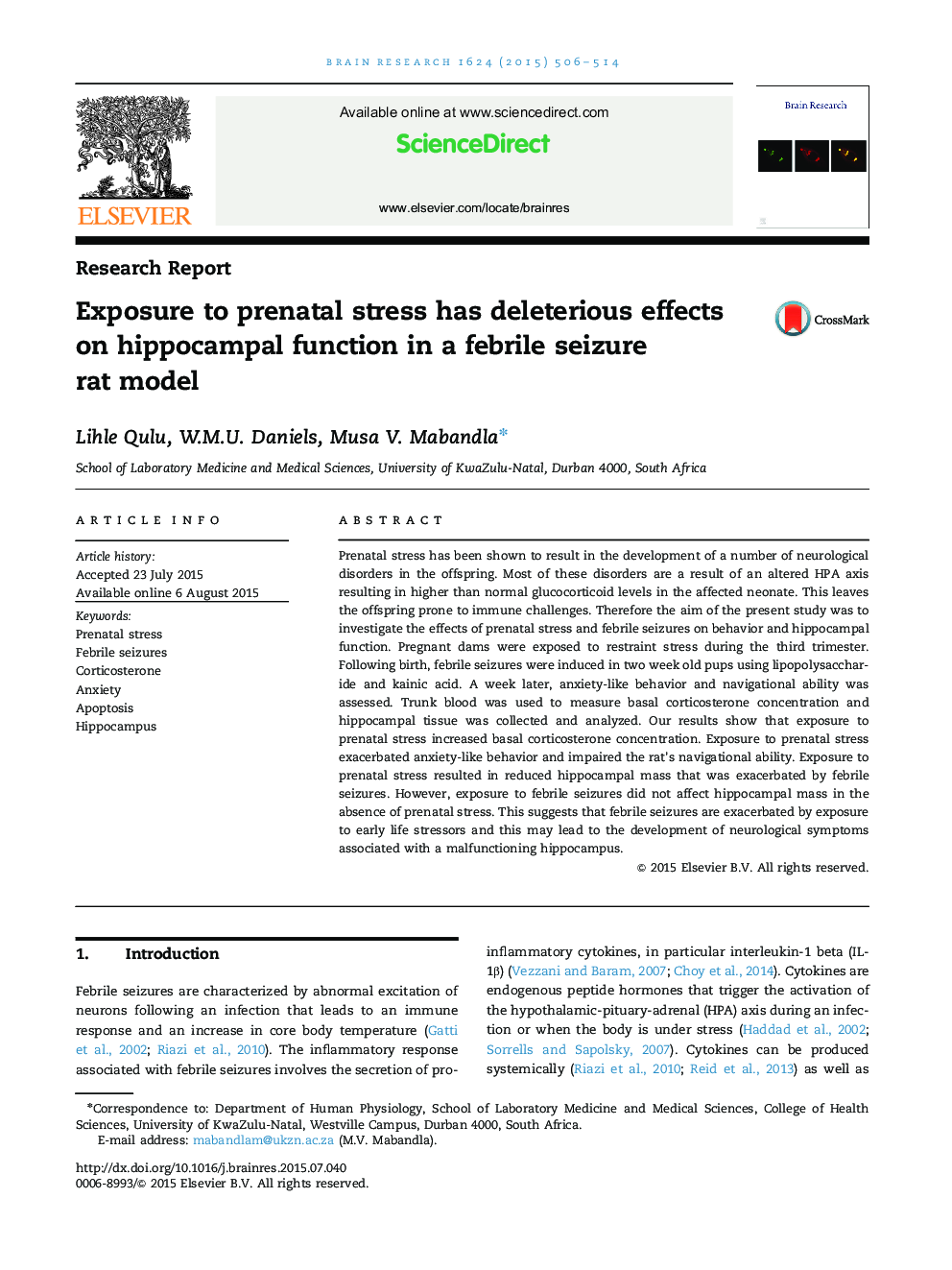| Article ID | Journal | Published Year | Pages | File Type |
|---|---|---|---|---|
| 6262890 | Brain Research | 2015 | 9 Pages |
â¢Exposure to prenatal stress results in anxiety-like behavior and impaired navigational ability.â¢Exposure to prenatal stress exacerbates febrile seizures.â¢Febrile seizures in normal offspring does not lead to reduced hippocampal mass.â¢Exposure to prenatal stress and febrile seizures reduce hippocampal mass.â¢Exposure to prenatal stress may result in apoptosis in hippocampal tissue.
Prenatal stress has been shown to result in the development of a number of neurological disorders in the offspring. Most of these disorders are a result of an altered HPA axis resulting in higher than normal glucocorticoid levels in the affected neonate. This leaves the offspring prone to immune challenges. Therefore the aim of the present study was to investigate the effects of prenatal stress and febrile seizures on behavior and hippocampal function. Pregnant dams were exposed to restraint stress during the third trimester. Following birth, febrile seizures were induced in two week old pups using lipopolysaccharide and kainic acid. A week later, anxiety-like behavior and navigational ability was assessed. Trunk blood was used to measure basal corticosterone concentration and hippocampal tissue was collected and analyzed. Our results show that exposure to prenatal stress increased basal corticosterone concentration. Exposure to prenatal stress exacerbated anxiety-like behavior and impaired the rat׳s navigational ability. Exposure to prenatal stress resulted in reduced hippocampal mass that was exacerbated by febrile seizures. However, exposure to febrile seizures did not affect hippocampal mass in the absence of prenatal stress. This suggests that febrile seizures are exacerbated by exposure to early life stressors and this may lead to the development of neurological symptoms associated with a malfunctioning hippocampus.
